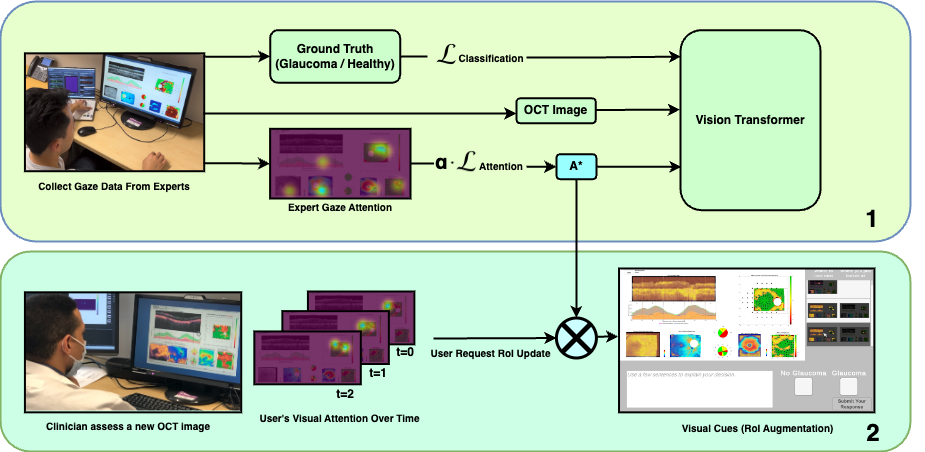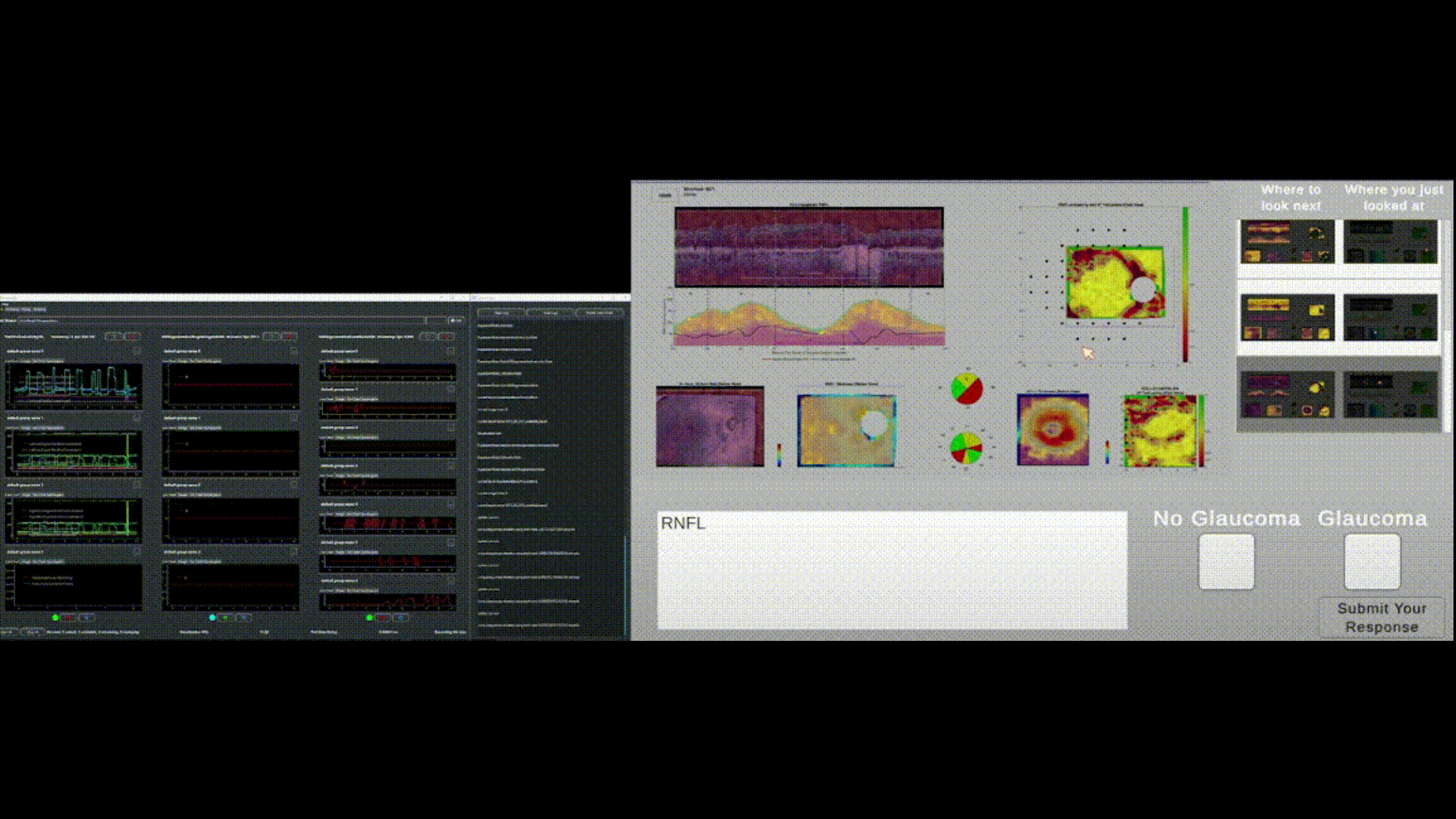Interactively Assisting Glaucoma Diagnosis with an Expert Knowledge-distilled Vision Transformer
Ziheng Li*, Haowen Wei*, Kuang Sun, David Li, Leyi Cui, Steven Feiner, Kaveri Thakoor

Duration: Aug 2024 – Present
Role: Project Lead, Lead Software Engineer, Experimenter, Co-First Author
Advisor: Dr. Steven K. Feiner & Dr. Kaveri Thakoor
Status: The ACM (Association of Computing Machinery) CHI conference on Human Factors in Computing Systems, 2025

Interactive Visual Cue
Overview: This project aims to enhance glaucoma diagnosis using an expert knowledge-distilled Vision Transformer, providing AI-augmented insights to ophthalmologists. The system integrates deep learning with medical imaging to focus on key diagnostic features in retinal images. By interactively highlighting areas of interest, the platform facilitates a more nuanced diagnosis process, aiming to support clinical decision-making.
Key Features:
- Expert Model: Focuses on critical diagnostic features in retinal images using a Vision Transformer distilled with expert knowledge.
- Augmented Insights: Highlights areas of interest for ophthalmologists, aiding in the detection and diagnosis of glaucoma.
- User Study: Conducted a user study with 15 ophthalmologists to validate the system’s utility and effectiveness in a clinical setting.
My Contributions:
- Leadership: Spearheaded the development of both the front-end and back-end systems, ensuring seamless integration of AI and user interfaces.
- User Study: Designed and conducted the user study with 15 ophthalmologists, gathering feedback to improve the system’s usability and diagnostic performance.
- Experimentation: Fine-tuned the interaction design to support clinicians effectively, focusing on enhancing decision-making processes in glaucoma diagnosis.
Significance: This project demonstrates how AI can support clinical decision-making, specifically targeting glaucoma diagnosis. By combining expert knowledge with advanced machine learning techniques, the system aims to improve diagnostic accuracy and efficiency, thereby contributing to better patient outcomes.
Additional Notes: Detailed insights into this project can be found in my Master’s thesis. The paper is published in the CHI 2025 Late-Breaking Work track, showcasing the potential of AI in assisting ophthalmologists in diagnosing glaucoma more effectively.